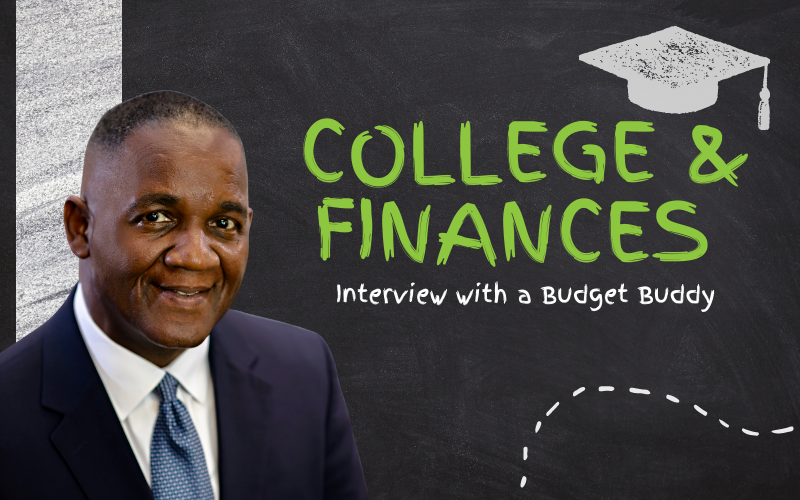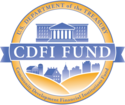Blog | College and Finances – An Interview with a Budget Buddy
Hello, my name is Clarence Nash. You might recognize me from my various roles within Resource One since 2002. Additionally, I have been a Certified Financial Counselor and Credit Union Development Educator since 2018.
These influences and experiences are the foundation of my belief that every individual has the potential to find value in themselves and others through applied learning and discipline, both socially and economically.
Today, I will be addressing questions you might have about college and finances. However, if you are interested in more information or a personalized evaluation of your specific situation, you can reach out to me or any of our other qualified Budget Buddies. This service is free to our members to help them get on the right financial foot.
I have never managed my finances; how do I start?
Managing your finances is the cornerstone to good financial health, regardless of how much you have. The process begins when you realize that finances are the roadmap to self-determination. Once you recognize the cost of the life you want versus the resources you have to use, it is called making a budget and living within your means. However, there are many considerations to make in between. There are many tools to start a budget; if you are a member of R1, we have a budgeting tool within online banking you can utilize. Our Budget buddies can also walk you through a few ways to make and set a budget that is easiest for you to keep up with.
Does a student loan change my credit?
Student loans can impact your credit score, depending on the conditions and circumstances. Many considerations can mitigate the negative consequences to your credit, but we will need to analyze the varied options and alternatives.
My income is limited; how do I keep up with everything?
Most people have limited resources, and being on a fixed income compounds the challenge. It’s not just your spending habits or appetite; many factors, including inflation, contribute to the peril. The key is a balanced life, spending less than what we bring in. Again, budgeting is our best hope, and even so, other considerations and sacrifices come into play.
I have no credit history; how do I get a loan?
Obtaining a loan with no credit history can be easier said than done, but it’s possible and probable in most cases. Most credit unions have product offerings designed to meet that need, provided a work history, sufficient cash flow, or other qualifying alternatives. For example, a secured credit card can be an option if you cannot qualify for an unsecured card. When a card is secured, the lender has funds set aside if the cards aren’t paid. You can also ask someone to co-sign a loan to help get approval. Remember, loans can be like trouble if you aren’t prepared, easy to get into, and hard to get out of.
I am saving to go to college; do you have any tips on getting started?
Congratulations, “the journey of a thousand miles begins with one step,” and you’ve made it. Saving now pays dividends later. Being committed paves the road to success. Start now with the commitment to excellence, not competition. Make the grades and opportunity that awaits in the form of grants and scholarships. Know the cost of what you want to achieve and research those support opportunities.
How can I save money while paying for college?
Wow, talking about having your cake and eating it too, saving money, and paying for college simultaneously is on the ambitious scale, but it makes “dollars and cents.” Obviously, there has to be income, discipline, commitment and focus. Perhaps consider working with a business or entity that provides tuition reimbursements or other educational credits. But, then, there are things like forgiveness for volunteer and service commitments, to name a few other ways.
I am looking to get a loan to help pay for school, what’s more important, rate or term?
Since the interest rate for borrowed money cost more, the longer the term, the quicker money is paid back, the less it costs. But still, there are other things to consider. We’ll have to put the pencil and paper for that one!
What is the difference between a credit card and a debit card? Should I use a credit card for all my purchases?
So, in a nutshell, a credit card is a loan product that you have to qualify for. If approved, you get a card with a pre-determined maximum limit and have to make revolving payments based on the usage or balance. A debit card access the available balance you have in your account and typically has no qualifying conditions. Some credit cards have cash back options, like our Visa® Signature Credit Card. Some cards other places may carry an annual fee, so using the credit card might not be the best option. We can help you look at the features and benefits to determine what might work best.
How do I know how much money I will need for the year to cover food and other costs I might have?
It can be difficult to determine exactly how much money you will need for the year, but as the saying goes, “people never plan to fail, and they just fail to plan.” Of course, being a student status should offer lots of flexibility. You’re constantly making adjustments and sacrifices, but knowing what you can afford and distinguishing between wants and needs gives you a clearer guess.
Ready to meet up and discuss your questions in-depth or didn’t find the answer you are looking for? Our Budget Buddies can look at your situation and provide you with a more personalized response. The more we know about your situation, the better we can help.






